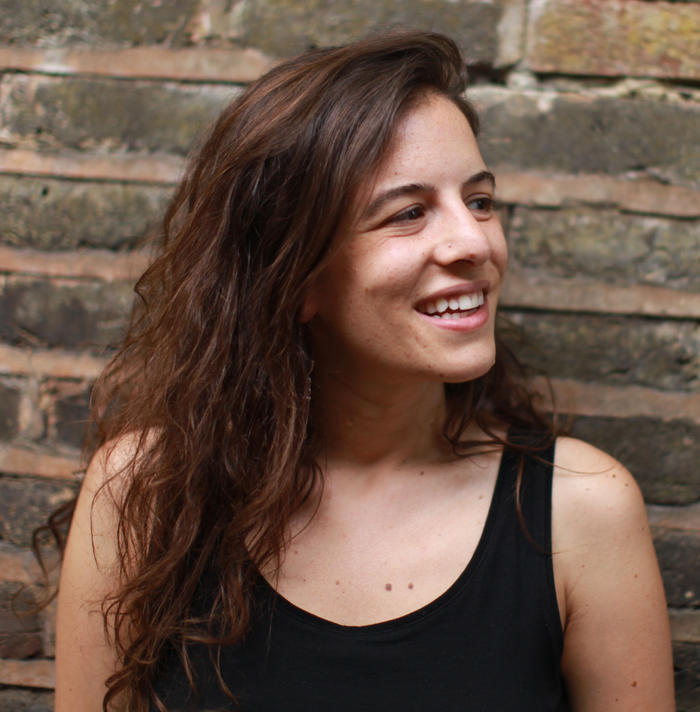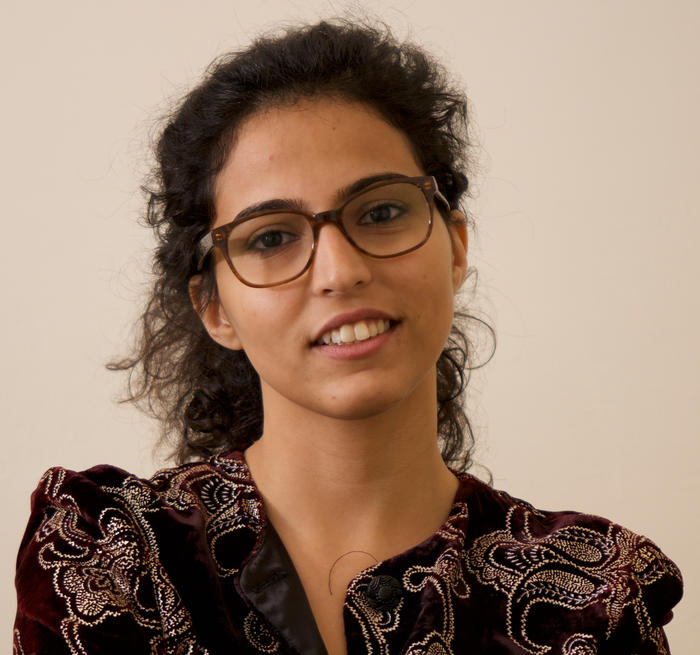Fellows 2018/19
Diana Abbani
received her PhD in Arabic Studies from Sorbonne University with a dissertation entitled “Music and Society in Beirut during the Nahḍa Period”. She holds an MA in History from Sorbonne University and an MA in Political Science from Saint Denis University, Paris. Her work focuses mainly on the social and cultural in life in the Levant, particularly on Beirut, at the turn of the 20th century. In her dissertation, she draws a social and cultural history of Beirut’s musical scene in the first quarter of the twentieth century. She offers a historical rethinking of the cultural and musical history of Beirut by looking at the relation between music, technology and society through the analysis of a set of primary sources. During the academic year 2018/19, Diana will be a EUME Fellow and associated with the Friedrich Schlegel Graduate School of Literary Studies at Freie Universität Berlin.
Lost Voices: Musical Life between Identity Quest and Modernity in Early 20th-Century BeirutThe book project is based on archival research (newspapers and memoires) and recorded songs from early twentieth-century Beirut. Combining interdisciplinary methods, it focuses on questions of modernisation, class and taste through the analysis of the changes occurred in the musical life. It follows the ways in which the collapse of the Ottoman Empire and the French mandate changed and affected entertainment and leisure in Beirut by focusing on its evolving musical scene, as it manifested in changing places of consumption, sociality and the distribution of music as a new form of commodity. The reading of how the social and political transformations in early 20th-century Beirut affected and created new forms of entertainment, leisure, musical expressions and commodities allows to understand the role of music in making a national identity and discourse in the newly established State of Greater Lebanon. The research offers thus a historical analysis of how collective identities took shape in songs that built national imaginary during the 1920s and 1930s by setting myths (such as the Glorious Arab or Syrian Unity) and debating new social values, such as the decadence in the society or gender issues. Contact: dianaabbany@gmail.com
Rasha Chatta
earned her PhD in Comparative Literature from SOAS, University of London (2016), with a dissertation titled “Marginality and Individuation: A Theoretical Approach to Abla Farhoud and Arab Migrant Literature”. She holds an MA in Near and Middle Eastern Studies from SOAS and a BA in History of the Middle East and North Africa from Panthéon-Sorbonne (Paris I) and “Classes préparatoires” in Humanities. At SOAS, she has taught courses on Arab women’s literature, Arab cinema, and the Arabic language. In 2009, she was Community Outreach Director at the Cairo-based Resettlement Legal Aid Project. Her research interests include visual aesthetics and memory, approaches to world literature, migrant and diasporic literatures, and war literature with a focus on Lebanon and Syria. Among her publications is the chapter 'Mutations of the Trans-Migrare: Reflections on Individuation and Un-Homing on the Other Side of Belonging', in Kläger, F. and Stierstorfer, K. (eds.), Diasporic Constructions of Home and Belonging (Berlin: De Gruyter, 2015) 53–69. During the academic years 2017/18 and 2018/19, she is a EUME Fellow associated with Friedrich Schlegel Graduate School of Literary Studies at Freie Universität Berlin.
The Arab Migrant Graphic Novel: A Comparative Study of (Im)migrant Stories, War Narratives, and Conflicted Memory between the Near East and EuropeThis research project will focus on the graphic novel, a sub-genre that is traditionally less examined in Arab and Middle Eastern Studies. It will seek to offer a comparative study of the Arab migrant graphic novel by examining the visual and creative portrayal of (im-)migrant experiences in the aftermaths of the Lebanese civil war, the Israeli-Lebanese war of summer 2006, and the Syrian war in the wake of the Arab spring. It will also focus on the role of memory in bridging dislocated narratives between the Near East and Europe. The project engages analytically with the creative forms of expression attending the current mass migrations, offering historical depth to the understanding of the cultural roots of recent movements and experiences. While aiming to bring the expertise of area studies to bear on the radical new artistic forms, the study will also aim to contribute on the side of visual studies and the study of comic and graphic narratives. It will seek to do so both by expanding the reach of these fields to include contemporary authors of Arab background writing in Arabic and different European languages, and by exploring the possibility of a comparative approach to the visual aesthetics of conflicted memory. Contact: rc49@soas.ac.uk
Mona Kareem
earned her PhD in Comparative Literature from The State University of New York at Binghamton (2018), with a dissertation entitled “Good Mothers, Bad Sisters: Arab Women Writers in the Nation.” She holds an MA in Comparative Literature from SUNY Binghamton and a BA in English and Comparative Literature from the American University of Kuwait. For the past six years, Kareem has taught literature and writing classes at SUNY Binghamton, Rutgers University, and the City University of New York. She is the author of three poetry collections and two book-length translations. Her translation of Ashraf Fayadh’s Instructions Within was nominated for the Best Translated Book Award 2017. She has been a fellow at the BANFF center in Canada and the Norwich Center in the UK. Her research interests include the contemporary feminist novel, the Arabic prose poem, strategies of literary translation, and subaltern subjectivities. During the academic year of 2018/2019, Kareem will be a EUME Fellow associated with Friedrich Schlegel Graduate School of Literary Studies at Freie Universität Berlin.
Good Mothers, Bad Sisters: Arab Women Writers in the NationThis study will examine contemporary Arabic feminist writings that offer various perspectives on the nation vis-à-vis their fictional narratives on marginalized groups. The research is broken down into a number of key political questions: How do these women-writers tackle the experiences and histories of marginalized groups, specifically migrants, blacks, and the stateless? How do they challenge or reproduce hegemonic accounts, rhetoric, and representations in their approaches to subaltern subjectivities? How do their writings address the archaic question of politics and aesthetics? What kind of intellectual history is summoned and generated in their praxis of writing? The choice to focus on the contemporary Arab feminist novel has multiple reasons and functions. One, it is instigated by the rise of the genre. Two, the dominant mobilization of the feminist novel as a vehicle for sociopolitical critique calls for a sociopolitical reading. Three, it allows for a critique of the Arab feminist thought, to examine their feminist praxis in writing literature, and to subsequently debunk the hegemonic understanding of Arab women as one entity, centered around the experiences of middle-class citizen-women. Contact: mona.kareem@gmail.com








